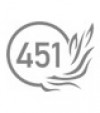Teaser
- joss
Synopsis
- A three-part event series by the German Federal Cultural Foundation in cooperation with the Ludwig-Maximilians-Universität in Munich.
In light of the current financial crisis, it has become more urgent than ever before to change and improve the way we do business. Economic practice is also a form of cultural practice -- and one of particular interest. How has the relationship between economics and culture evolved historically? How does economic practice function in other contemporary cultures? And most importantly, what kind of economic world can and should we strive for in the future? These are some of the questions which leading economists, scholars and cultural artists discussed at the event series "Cultures of Economics" held on three days in May and June 2010.
The artist Karina Smigla-Bobinski has developed a changing installation for each conference in the event series. Her work plays on the motif of "joss paper" which is burned at traditional Chinese ancestor worship ceremonies and New Year celebrations. Originally used as paper money, many people nowadays use joss paper to make life-size papier-mâché models of Western brand-name products. The artist has acquired copies of Western consumer goods from the Asian market and will present them here in a new context.
The term joss was derived from the portuguese word for god. In the 17th century jesuit missionaries arrived in china, they called the gold and silver plated rise papers locals used 'joss papers', god papers.
The missionaries told the Chinese, that all non christian people would end up in hell after death. But the Chinese adapted it to their own culture, and understood the concept of hell merely as an afterlife hangout-place, not a place of eternal damnation or suffering. For this afterlife, they need to take everything necessary with them. This all happened before the annunciation of the world wide reign of christ. It is said: 'He became salvation and strength' The same words still proclaim the big promise and the power of global economy. Back than christians dreamed of a empire, where the sun never set, but the global economy succeeded in it first. Even the Joss paper tradition changed and adapted itself to modern times. It didn't suffice to have the most necessary things in afterlife, it was important what you had with you after death. A normal car wasn't enough, you needed the best, a Mercedes S class for example. Step by step the afterlife mutated, modeled after this world, into a second life of gorgeousness and swank.
By now you can get an iPhone app with which you can burn Joss bank notes digitally, which look a bit like 100 € notes. The burning is an act of transformation. In the moment of being burnt, the joss papers become something like the alias of things, send to the world of ghost and materializing there into the 'real things'. It is something like a voodoo cult, where you don't only give these things as gifts to dead family members, but also use them as some kind of bribery, so that the ghosts of ancestors and gods might help you with your own plans. The joss-paper tradition is not a form of religion. It is rather a superstition, that has spread through almost whole asia. In Taiwan for example companies burn joss paper every week for economic success and prosperity.
Cultures of economy… economizing is a sort of cultural action, just like art is part of a culture. Facing today's situation it is necessary to think over how this economy should be thought of and how it should be done. The society is changing from a industrial into a media society. The massive flow of information slowly represses the written word and using the high speed of information-transmission of pictures. One picture can say more than a hundred words. Information and new ideas have to be thought over and processed first. Transdisciplinary work is of utmost importance as to view a problem from a meta-persepective and finding joint utopia. That is the condition for right, farsighted, global and humane solutions.
Art can function as a kind of pre-thinker and a mirror of the society, and has thereby a very important role. It clarifies in pictures unsparingly what problems we might not be aware of, schemes of how things work, fears, tabus… It does not give answers how it should be handled, but it changed the point of perspective the viewers have and thereby change the joint perception, which coordinates social movements and decisions.
The Joss show in an ironic way the madness of global economy and consumption. Similar to Fellinis catholic fashion show in 'Roma', I present a consumption show of the global economy. The installation alludes the concept of an altar of consumption but at the same time it becomes a kind of generator, when the burning takes place. The material dreams float away as soap bubbles and hang above the peoples heads.
It would be also possible to see in it a dam, when considering the black wall which seems to be holding back the mass of paper consumption-goods and thereby creating a free space where interdisciplinary discussions can take place.
At the end the joss are burnt. The Joss consumption goods I in some ways re-imported from China, from a world of ghosts back in to our real world, the their origin, are thereby destroyed. A fun fact is that the things that don't go through customs, such forgeries, are being burnt, too. With my installation i create a awareness for that problem of a consumption doom-loop, that swallows nation after nation, and often robbing people their base of life.
Further Informations: www.smigla-bobinski.com/kultur...
Crew
- Regie: Karina Smigla-Bobinski, Karina Smigla-Bobinski
- Musik: Muslimgauze
- Sprecher/in: Tim Bennett
Festivals
- (2010) Cultures of Economics, Berlin


















